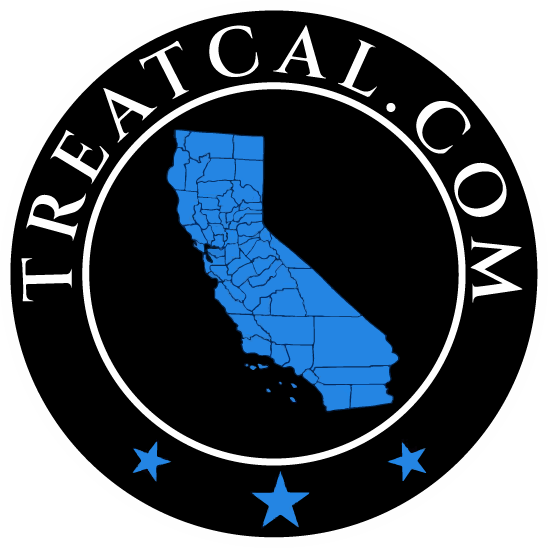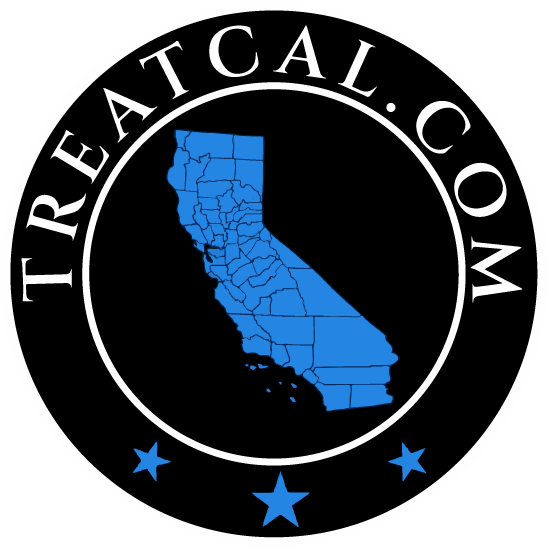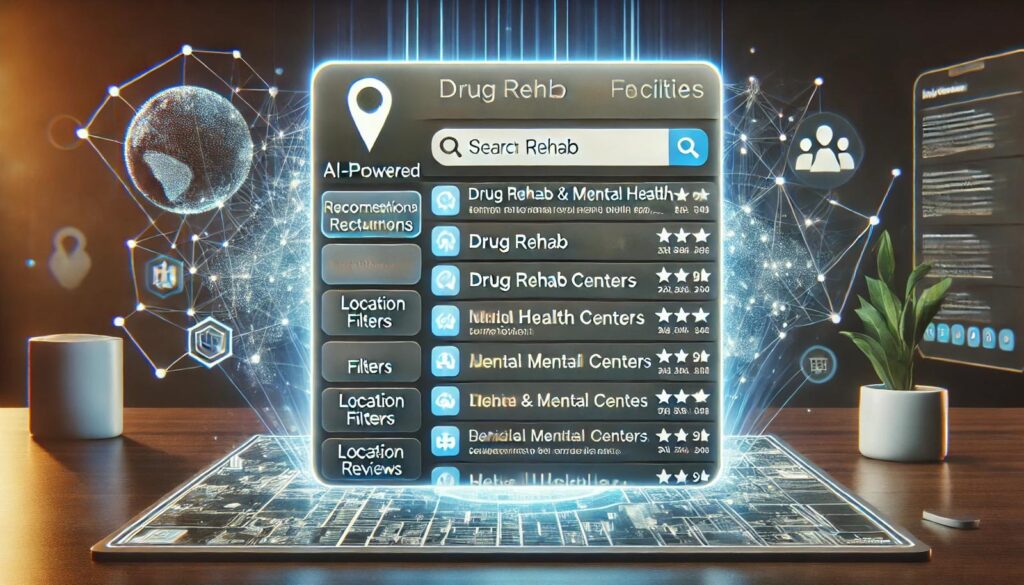Finding the right mental health facility for yourself or a loved one can be overwhelming. With countless treatment centers offering a variety of services, programs, and specialties, the search process can feel like navigating a maze. But what if there was a smarter, faster, and more effective way to find the ideal care? This is where AI-driven mental health directory platforms come into play, offering a revolutionary solution that enhances the way people connect with the treatment they need.
This article will explore the benefits of using a mental health directory platform integrated with artificial intelligence (AI) and how it’s transforming access to mental health care.
1. Precision Matching: Personalized Care Recommendations
One of the greatest advantages of AI-driven directory platforms is their ability to provide precise, personalized recommendations. Traditional directories rely on users to sift through listings based on broad categories or locations, which can lead to confusion and frustration. With AI integration, however, the platform goes beyond basic filters, using sophisticated algorithms to match individuals with the most appropriate facilities based on their unique needs.
- Client-specific profiles: Users input specific information, such as mental health history, diagnosis, treatment preferences, insurance coverage, and personal goals. AI analyzes this data to curate a list of facilities that align with the individual’s specific profile.
- Matching based on expertise: AI can match clients with mental health professionals and facilities that specialize in their particular condition, whether it’s anxiety, depression, trauma, substance use, or dual diagnosis. This ensures that clients are connected to providers with the expertise they need for effective treatment.
- Adaptability: As the individual continues to search or refine their preferences, the AI learns from their interactions, providing increasingly accurate recommendations.
By offering such a personalized approach, AI-driven platforms ensure that individuals don’t just find a mental health facility—they find the right one for them.
2. Time-Saving and Efficiency: Faster Access to Treatment
In mental health crises, time is of the essence. Prolonged delays in finding the right care can worsen conditions and increase the risk of harm. Traditional methods of finding a mental health facility—such as calling multiple centers, waiting for referrals, or searching through large online directories—are time-consuming and inefficient.
With an AI-driven directory, the search process is streamlined and accelerated:
- Instant search results: AI cuts through the noise, analyzing thousands of facilities in seconds to provide you with a list of matches that fit your criteria.
- Real-time availability: Many AI platforms can integrate with facilities’ databases to check availability in real time, helping users find centers with open spots and reduce wait times.
- Automated follow-up: If the perfect facility is currently full or unavailable, AI systems can track availability and notify the user when a spot opens up, ensuring that no opportunity for care is missed.
This speed and efficiency make a huge difference, particularly in urgent situations where delays could exacerbate mental health issues.
3. Improved Accessibility: Breaking Down Barriers to Care
For many people, accessing mental health care feels daunting due to a variety of barriers—geography, cost, or stigma. AI-powered mental health directories aim to reduce these obstacles and make care more accessible for everyone.
- Geographic considerations: AI can help individuals find facilities near them or identify programs that offer telehealth options, making care accessible regardless of where they live.
- Insurance compatibility: One of the biggest challenges in accessing mental health care is understanding insurance coverage. AI algorithms can quickly cross-reference treatment centers with an individual’s insurance plan, ensuring that users are connected to providers covered under their policies.
- Sliding-scale or free options: AI-driven directories can also identify facilities that offer sliding-scale fees or pro-bono services, making treatment accessible to those with limited financial resources.
- Diverse treatment options: AI can match users with facilities offering a wide range of treatment modalities—such as cognitive-behavioral therapy (CBT), dialectical behavior therapy (DBT), or holistic approaches—ensuring that clients find care that aligns with their preferences and comfort level.
By personalizing searches to the user’s circumstances and preferences, AI platforms eliminate many of the traditional barriers to seeking mental health care.
4. Data-Driven Insights: Evidence-Based Matching
AI operates on data—analyzing and learning from vast amounts of information about mental health conditions, treatment outcomes, patient reviews, and more. This data-driven approach ensures that the recommendations provided by AI-driven platforms are backed by evidence, not just assumptions.
- Outcome-based recommendations: AI uses historical data to determine which facilities or programs have the best outcomes for particular conditions. If certain centers consistently produce positive results for clients with depression, for example, the platform is more likely to recommend them for similar users.
- Real-time feedback integration: AI algorithms continuously improve based on user feedback and data updates. This means the platform is always learning and evolving, providing increasingly accurate matches over time.
- Tracking success metrics: Some platforms even allow users to track treatment success rates, ensuring that clients are referred to facilities that demonstrate tangible progress in helping individuals recover and thrive.
The result is a smarter, more informed referral system that connects people with the highest-quality care possible.
5. User-Friendly Interface: Making Mental Health Care Less Intimidating
The process of searching for mental health care can be overwhelming for individuals already struggling with their mental health. AI-driven platforms are designed with user-friendly interfaces that simplify the process and reduce stress.
- Guided searches: Users are guided through intuitive questions that help define their needs and preferences without requiring advanced knowledge of mental health treatment.
- 24/7 accessibility: These platforms are available anytime, offering immediate support whenever users are ready to take the next step.
- Multilingual and inclusive options: Many AI platforms support multiple languages and offer inclusive search options for individuals of diverse backgrounds, genders, and identities, ensuring that everyone can find care that feels right for them.
This ease of use helps break down the intimidating barriers that often prevent people from seeking help and makes the process of finding care smoother and more approachable.
6. Confidential and Secure Searches: Protecting User Privacy
Privacy is a significant concern for individuals seeking mental health care, especially in the early stages of their search. AI-driven platforms prioritize user confidentiality and security, ensuring that personal information is protected.
- Anonymous browsing: Many platforms allow users to search for facilities anonymously until they are ready to share their information with the facility itself.
- Data encryption: The most advanced AI platforms use data encryption to protect sensitive information, ensuring that personal health data is kept confidential and secure.
- Compliance with health regulations: Trusted AI platforms comply with regulations like HIPAA (Health Insurance Portability and Accountability Act), ensuring the highest standards of privacy protection.
This commitment to privacy empowers users to take control of their mental health search without fear of exposure or judgment.
Conclusion: The Future of Mental Health Care is Here
AI-driven mental health directory platforms represent the next evolution in connecting individuals with the care they need. By leveraging the power of artificial intelligence, these platforms provide precise, personalized, and efficient matches, making mental health care more accessible and less overwhelming. Whether you’re looking for a treatment facility for yourself or a loved one, using an AI-integrated platform can ensure you find the right care at the right time, breaking down barriers and offering hope for a healthier future.
The future of mental health care is here, and AI is leading the way to a smarter, more compassionate system that puts the needs of individuals first.


